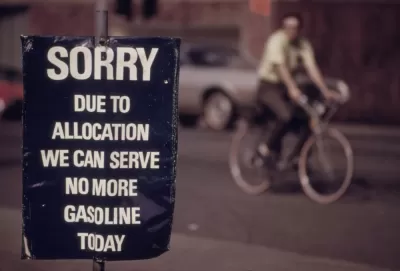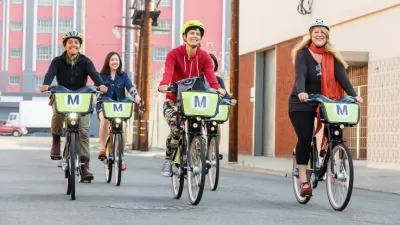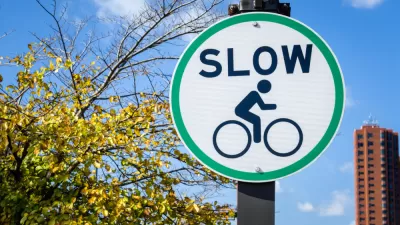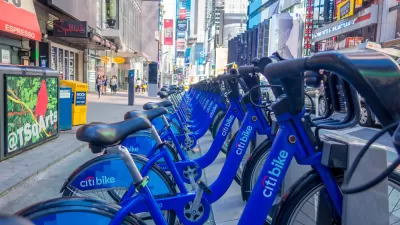Back when baby boomers were in their late 20s and early 30s, they drove a bike boom. It is now largely forgotten.

"US bicycle sales, which had been rolling along at 6 million a year, shot up to 9 million in 1971, 14 million in 1972 and 15.3 million the following year, according to a Bank of America report," Carlton Reid writes in an excerpt of his new book for the Guardian.
The book, Bike Boom: The Unexpected Resurgence of Cycling, documents the unexpected surge in popularity of biking in the 1970s. The story of the boom is not just about a jump in sales; it was also a time of political action. The 1970s saw a number of pedal ins and bike ins—where advocates and politicians of both parties addressed bikers. According to Reid, "[i]n 1973, 252 bicycle-oriented bills were introduced in 42 states. The Federal-Aid Highway Act of the same year provided $120m for bikeways over three years." The boom turned to bust in the mid-70s, as fashions changed along with demographics. By 1975, Reid contends the bike "turned out to be the Hula Hoop of the 1970s."
FULL STORY: Pedal-ins and car burials: what happened to America's forgotten 1970s cycle boom?

Manufactured Crisis: Losing the Nation’s Largest Source of Unsubsidized Affordable Housing
Manufactured housing communities have long been an affordable housing option for millions of people living in the U.S., but that affordability is disappearing rapidly. How did we get here?

Americans May Be Stuck — But Why?
Americans are moving a lot less than they once did, and that is a problem. While Yoni Applebaum, in his highly-publicized article Stuck, gets the reasons badly wrong, it's still important to ask: why are we moving so much less than before?

Research Shows More Roads = More Driving
A national study shows, once again, that increasing road supply induces additional vehicle travel, particularly over the long run.

Which US Rail Agencies Are Buying Zero-Emissions Trains?
U.S. rail agencies are slowly making the shift to zero-emissions trains, which can travel longer distances without refueling and reduce air pollution.

San Diego School District Approves Affordable Housing Plan
The district plans to build workforce housing for 10 percent of its employees in the next decade and explore other ways to contribute to housing development.

Lawsuit Aims to Stop NYC’s ‘City of Yes’ Zoning Reforms
A lawsuit brought by local lawmakers and community groups claims the plan failed to conduct a comprehensive environmental review.
Urban Design for Planners 1: Software Tools
This six-course series explores essential urban design concepts using open source software and equips planners with the tools they need to participate fully in the urban design process.
Planning for Universal Design
Learn the tools for implementing Universal Design in planning regulations.
City of Moreno Valley
Institute for Housing and Urban Development Studies (IHS)
City of Grandview
Harvard GSD Executive Education
NYU Wagner Graduate School of Public Service
City of Cambridge, Maryland
Newport County Development Council: Connect Greater Newport





























